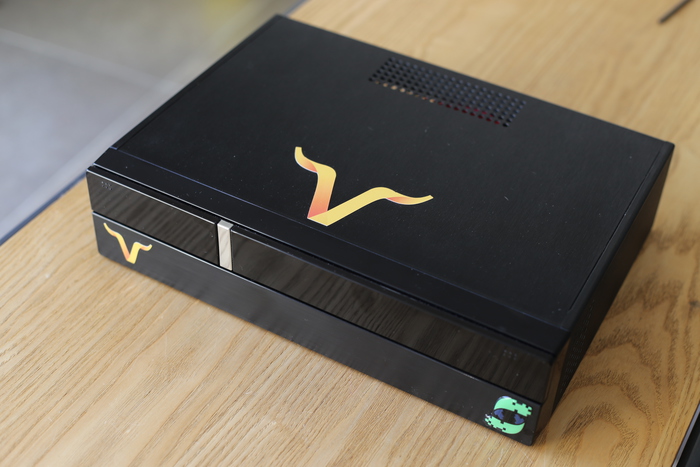aarch64 build machines donated
Good news! We got a present for our build farm in the form of two
SoftIron OverDrive 1000 aarch64 machines donated by ARM Holdings. One
of them is already running behind our new build farm, which distributes
binaries from https://berlin.guixsd.org, and the other one should be
operational soon.
The OverDrive has 4 cores and 8 GiB of RAM. It comes in a fancy VCR-style case, which looks even more fancy with the obligatory stickers:

A few months ago we reported on the status of the aarch64 port, which was already looking good. The latest releases include a pre-built binary tarball of Guix for aarch64.
Until now though, the project’s official build farms were not building aarch64 binaries. Consequently, Guix on aarch64 would build everything from source. We are glad that this is about to be fixed. We will need to expand our build capacity for this architecture and for ARMv7 as well, and you too can help!
Thanks to ARM Holdings and in particular to Richard Henwood for contributing to our build infrastructure!
About GNU Guix
GNU Guix is a transactional package manager for the GNU system. The Guix System Distribution or GuixSD is an advanced distribution of the GNU system that relies on GNU Guix and respects the user's freedom.
In addition to standard package management features, Guix supports transactional upgrades and roll-backs, unprivileged package management, per-user profiles, and garbage collection. Guix uses low-level mechanisms from the Nix package manager, except that packages are defined as native Guile modules, using extensions to the Scheme language. GuixSD offers a declarative approach to operating system configuration management, and is highly customizable and hackable.
GuixSD can be used on an i686, x86_64 and armv7 machines. It is also possible to use Guix on top of an already installed GNU/Linux system, including on mips64el and aarch64.
Sauf indication contraire, les billets de blog de ce site sont la propriété de leurs auteurs respectifs et publiés sous les termes de la licence CC-BY-SA 4.0 et ceux de la GNU Free Documentation License (version 1.3 ou supérieur, sans section invariante, sans texte de préface ni de postface).